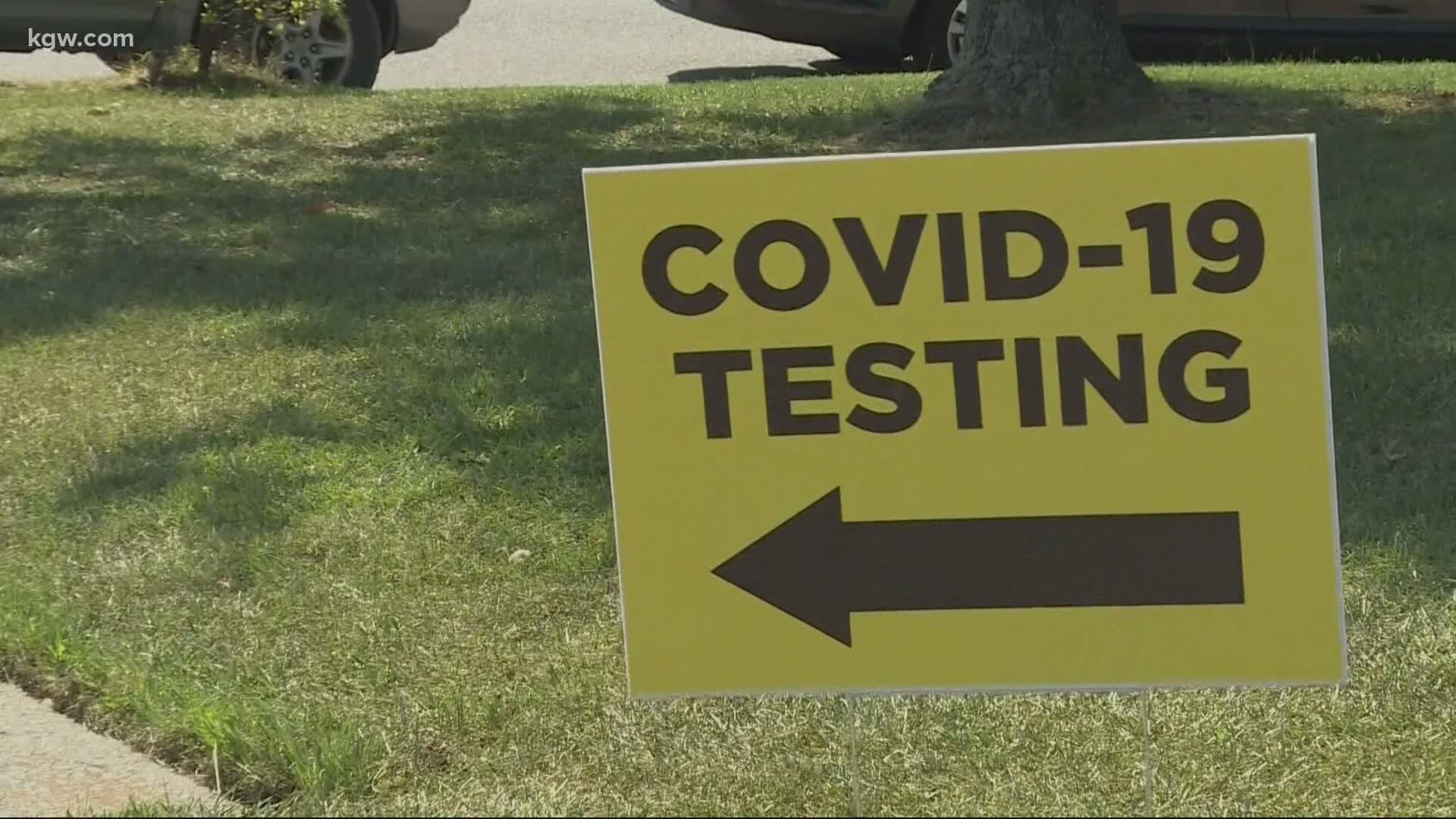PORTLAND, Ore. — The coronavirus continues to spread. And the science on what to do if you have it or think you have it is clear: Isolate from others if you test positive, and quarantine before that, if you've been exposed.
That's what my KGW colleague Andrew Dorn had to do, back in August. He’s better now, but he did feel the effects of the virus then.
“Right around Day 6 from exposure, I started to have a fever and I definitely felt weak,” said Dorn, who like most KGW employees, has been working from home since early in the pandemic.
Dorn was already quarantining for the recommended 14-day period because he knew he'd been exposed to the virus.
That was the right move, according to Legacy Health's Dr. Nick Kashey.
He used this example to explain:
If somebody with COVID coughed on me today, I'm not going to test positive later this afternoon, I'm probably not going to test positive tomorrow or the day after; it's going to take a few days before my test turns positive.
Dorn did wait a few days into his quarantine to get tested, as recommended.
“And then I got the results, I think 24 hours later, they said, ‘If it's negative we'll email, if it's positive we'll call,' and then then the next day I saw a call from OHSU and thought, 'Oh that's bad news.'”
If you test positive and have symptoms like Dorn did, health officials and medical providers follow CDC guidelines and say you need to achieve three things before being around other people:
- No fever for at least 24 hours, without using medicine
- Other symptoms must improve
- Wait at least 10 days since you first felt symptoms
If you test positive but have no symptoms, you need to wait 10 full days from when that test was taken before being around others.
“That’s the piece when we rely on you to continue to work with us together, to stay home and not get other people sick,” said Multnomah County Communicable Disease Director Kim Toevs.
Toevs recognizes that isolating is a huge hardship for a lot of people, for a variety of reasons. She said there is help available from 70 nonprofit partners, from financial to food to other assistance, if that's the case.
“That's really good news," Toevs said. "And we've tried to support that so that you can stay home, and the reason why is because that's so important."
“Quarantining and being contained in your little environment works if you're able to just sacrifice and be patient for a little while,” said Dorn.
Multnomah County Health Department offers a page dedicated to what to do if you test positive for COVID-19 on its coronavirus website.

